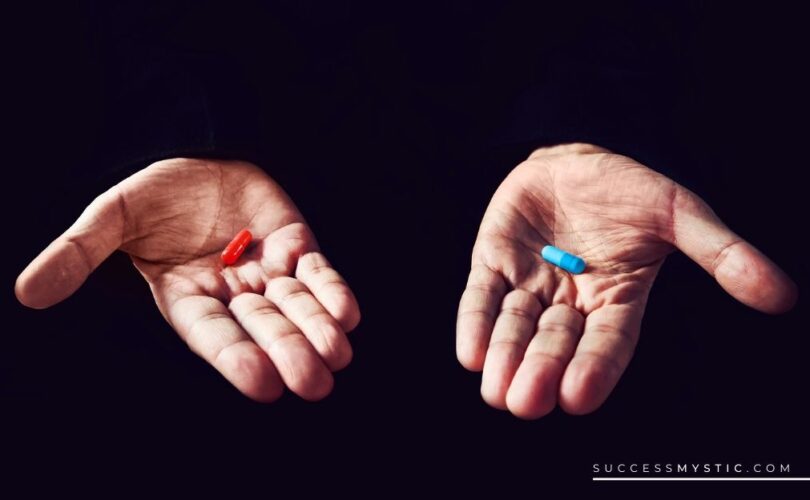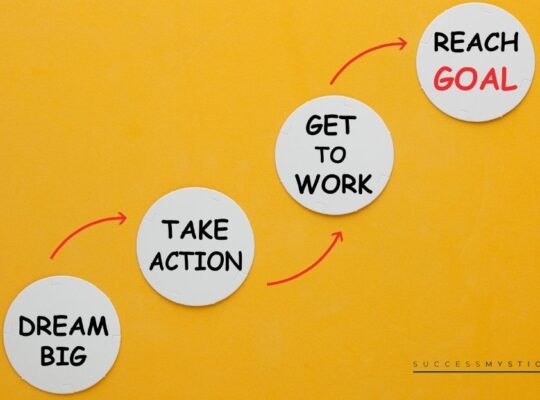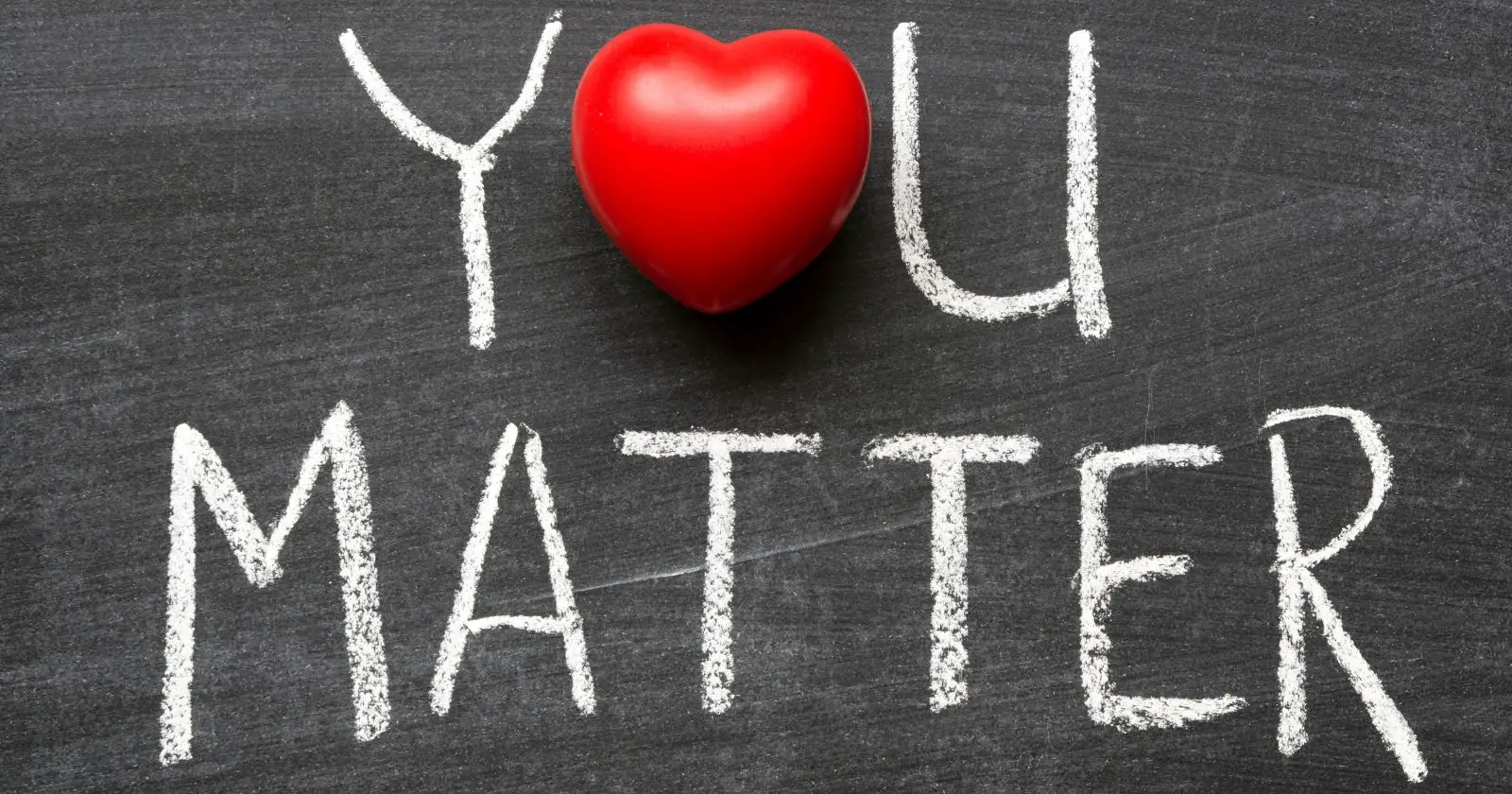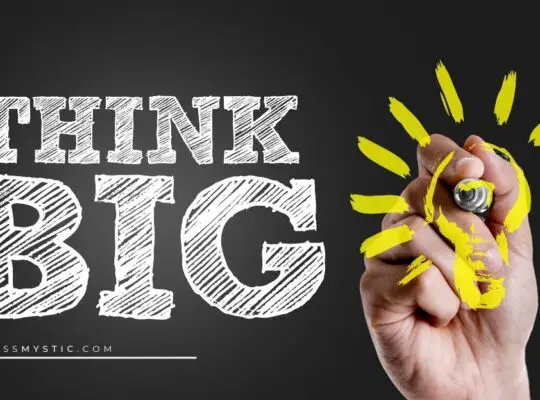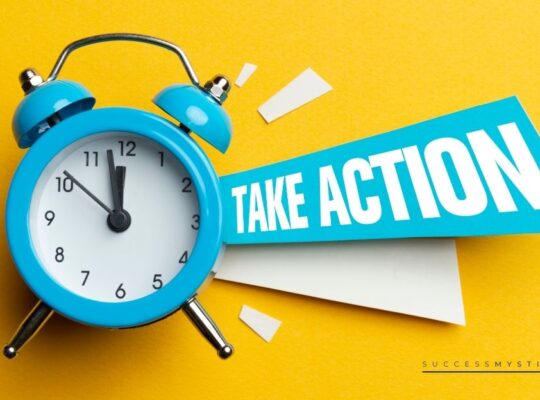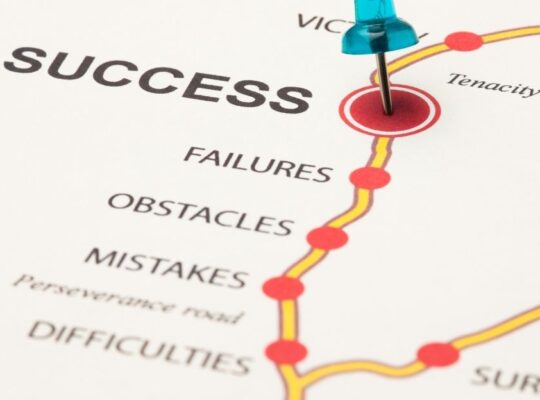What Is Freedom of Choice?
Authority limits choices, and all choices have consequences.
Freedom of Choice is a concept so important and integral to our society that this concept is widely applied to most individual parts of our society. You will find the concept of Freedom of Choice, and the importance ascribed to it etched into politics, economics, day to day life, and in the medical field. Though how far one’s “freedom of choice” should expand is usually a matter of debate, the one thing that rings true is how important this concept is to us as an organized society, and advanced species.
Freedom of Choice is defined by your unfettered right and ability to do what you want, when you want, as you so choose. Many of us will argue that freedom of choice should only go so far until or when you begin to inhibit the rights and abilities of others to exercise their to choose. This is an important point we’ll get back soon.
We all have Freedom of Choice in every situation. Whether we like those choices, or whether we choose to make those decisions are choices in and of themselves separate from the main fact. Every single day every one of us choose to do the things we do. In situations where a person’s individual freedoms have been stripped from them, choices still exist. These cases can include instances of imprisonment or being held hostage.
People who are denied access to everyday freedoms and liberties the rest of us so readily take advantage of still having the choice in how to feel about their situation, how they adapt to it, and how much personal power they allow to be stripped from them. No matter your situation or choices, you still have the freedom of choice over the kind of attitude you display, or the response you bear. It’s a fact that authority limits and is directly threatened by Freedom of Choice.
This is unfortunate, but still how the world works. We can’t change that no matter how much we want to. The fact remains that the importance of Freedom of Choice is so engrained in our society, that even when we don’t like our choices or situations, we still have the freedom to choose.
Understand Your Choices
Have you ever noticed in those documentaries where some animals are social animals, and some aren’t?
For example:
Polar bears aren’t typically social animals. When a mother bear gives birth to cubs, she raises her cubs to the best of her ability, and then shoves them out on their own. During their early life, the cubs must face the harsh reality of what it takes to survive in their shrinking and changing environment.
If a cub isn’t strong enough, they will die young. Once a cub is big enough to hunt on his own, the mother will push him away. She can’t go through the rest of her life taking care of herself and her grown cub. She did the best she could, and the rest is up to him.
Other animals like wolves, and wild horses create packs or herds. When cubs or foals grow enough to take care of themselves, they either choose to stay with the pack or herd or find another.
Granted the process is much more difficult than that, but this still demonstrates that even the animal kingdom puts an importance on freedom of choices.
Different types of choices exist for all of us.
- Difficult Choices
- Heart wrenching Choices
- Impossible Choices
- The Kinds of Choices that make us question our humanity
- Choices that challenge our values and conscience.
- Choices that are incredibly easy to make
- Choices we look forward to
- Choices that cause excitement and elation
- Choices that come so naturally that we don’t even think about them when we make them
Every time you go to the counter or drive-thru at Starbucks, you’ve already made a number of choices. Every choice you made along the way gets you to the ultimate goal of that Double shot iced caramel macchiato with extra whip cream and chocolate sprinkles.
First, you decided to that you wanted something, then you decided that the something you wanted was at Starbucks. At that point, you chose to drive or walk to your neighborhood coffee dealer, and then you chose to order and pay for your fix.
Other choices you make in process like this are choices involved in weighing the cost of your macchiato against the balance of your bank account, or available calories for the day.
Everything we do in life involves making choices. Many of the choices that we make are made by us without hesitation or thought. However, some choices we are faced with require planning and weighing of pros and cons. It doesn’t matter what kind of decision you’re making. All decisions have variable consequences that you either will or won’t weigh.
2 Caveats
Freedom of Choice is a holy concept in our society. So holy is this concept that to step on someone’s freedom of choice is taboo. We speak liberally about the magic and empowerment of choice, but many of us fail to touch on the fact that every freedom and right comes with a personal cost.
There are 2 caveats to Freedom of Choice. These are the tolls that must be paid to the troll lest they be taken from us by force.
- Every choice we make comes with a consequence or set of consequences that we have Zero control over
- Many of our choices are hard and heart wrenching whether we like it or not.
Case Study:
Amanda’s dog is 10 years old. The dog is a pit-bull and she has some good days still left in her. However, most days the dog is in arthritic pain. She has trouble jumping on the bed and doesn’t run to greet guests at the door because the pain is so bad.
She’s still happy to see Amanda, shows her love for her family, and is liberal with licking. The dog seeks to have her belly rubbed as all dogs do, and Paisley is an integral part of the family. However, Amanda is now faced with the hardest choice every dog owner has to eventually make.
Amanda and Paisley’s veterinarian has presented Amanda with two options for Paisleys future care. She can either have Paisley euthanized as an act of love and mercy or put Paisley through a painful medical process that may or may not help Paisley with her arthritis.
Amanda doesn’t relish either choice. In her mind, her options are to either watch her beloved dog live in constant pain or say a very painful goodbye.
In Amanda’s situation, the choices are horrible, but her vet has provided Amanda with a choice, nonetheless. It’s up to Amanda to make that choice. She won’t like either one, or will she be happy with the consequences of either choice. But, at the end of it all, the freedom of choice here belongs to Amanda as Paisley’s primary caretaker, and the freedom to make the choice exists.
It’s hard for many to understand that freedom of choice isn’t always enjoyable. With this freedom comes a responsibility. It’s easy to understand why many people feel resentful about the choices they’re offered, but that’s also their choice.
As far as consequences go, it’s important to understand that you have zero control over what those are. You, personally, cannot control how others will react to your decisions, or what steps they may take against or for you in response to your actions.
You can go through and try to prepare for the consequences of your actions, and some consequences are obvious.
If you choose to not pay your rent, chances are your landlord is going to take exception to that. If you cheat on your spouse, he’s likely to react badly. If burn an American flag in front of an American Veteran, you’re likely going to be in for a world of hurt.
On the other hand, If you pay your rent a few days early every month, you might be able to stir up some extra bargaining power with that goodwill when it comes time to renew your lease. If you remember your spouse’s birthday every year, you’ll likely strengthen that component within your marriage.
Regardless of what you do, or how careful you are, every choice you make has consequences. Those consequences should be weighed and considered. At the very least, don’t get mad when you do what you want but the world doesn’t respond favorably.
It’s Not All About You
In this world, there are those who think it’s acceptable to make choices for others, or force others to conform to choices made for them that they may not agree with.
Freedom of Choice either exists for every person, or it doesn’t exist at all. It’s really that simple.
Small children who are not developed enough to make decisions for themselves often have to rely on adults to make decisions for them in reference to bedtimes and what to eat at mealtime. However, even in the cases of psychologically impaired individuals, freedom of choice is important.
On the same coin, freedom of choice can be an argument used for opposing arguments on the same subject matter. The landmark 1973 Supreme Court Case of Roe v. Wade established a right to privacy. This one example and issue has caused more social and legal division than most other. Without taking sides, one of the key components this divisive issue comes down to is freedom of choice.
Who that Freedom of Choice should be left to is often the matter for debate.
When someone has a decision to make that may affect you there are two choices left for you.
- Present the choice you’d prefer but let them make the choice
- Force your decision upon them thereby denying them the freedom of choice
Johnny and Lisa have been in a relationship for 5 years. He works on the oil pipeline and so is away from home for weeks to months at a time. Lisa sews for a living. She runs a business giving sewing lessons out of her house and sells crafts she makes at local flea market stands or annual events.
Both are usually busy working. After 4 years, Johnny finally proposed to Lisa. However, six months later, Johnny got drunk with his buddies, and posted a picture of himself with a woman he’s been dating behind Lisa’s back. As part of working on the Oil Pipeline, Johnny often works time zones away from home for long distances of time.
Needless to say, Lisa found herself stunned and speechless. This relationship has lasted a number of years, and both of them have their own adult children who have become emotionally invested in the success in Johnny and Lisa’s relationship.
Lisa decides to end the relationship, kick Johnny out of their house, and move on with her life.
In this situation, the adult children of Lisa and Johnny respectively were stunned. They were also hit with the emotional backlash of the separation of their parents. However, regardless of how much the adult children had invested in this relationship, the decisions made here were not theirs to make.
Johnny exercised his freedom of choice when he chose to date a woman closer to his work location rather than remaining loyal to Lisa as he’d promised to do. Lisa decided that Johnny’s infidelity was too much to handle and chose to end the relationship.
At no point in any of this was any of the decision making made available to anybody else but Johnny and Lisa. As part of this life changing process, Lisa called her children one at a time to let them know what had happened. At some point in every conversation she did ask for their opinions, but she ultimately made her own choice.
At the end of the day, you and only you can live your life. It is possible to live your life according to the decision’s others think you should make, but you probably won’t be very happy. The same concept applies to those around you. At the end of the day, your sister, best friend, mother, father, or friend are responsible for living their own lives.
Part of that is that when you make a decision, you are responsible for the consequences- not those who told you what decision to make. If you have a friend or sibling struggling with a decision, you can present your opinion and let them make their own choice. When it’s all said and done, your friend or sibling will be the one who will have to handle or receive the gift of the consequences. Not you.
That being said, you can also present your opinion and then proceed to nag, cajole, and bully your friend or sibling until they make the decision you want them to make. When it’s all said and done, your friend or sibling will be the one left to deal with the consequences. If those consequences are bad, you’ll be the one blamed for it.
Freedom of choice is never just about the decisions you make. It’s also about respecting the choices, and decision-making processes of those around you.
Empowerment and Happiness
One of the reasons freedom of choice is so highly regarded in our society is because it’s empowering. Choice means freedom. We all desire freedom because ultimately freedom brings happiness.
Freedom of choice means being able to compare the variables of a situation, weigh the pros and cons, consider the potential consequences, weigh the proposed effects of those against your available threshold, and then ultimately choosing what’s best for you.
One of the hardest things to do is to connect the concept of your personal freedom of choice with respecting the freedom of choice that others around you also have a right to. We all want to feed our ego with the rewards of what we’ve invested our ego’s into.
Kryptonite
So, Superman was from a planet called Krypton, and it was Kryptonite that ultimately proved to be his… well, Kryptonite.
There are three things that can kill freedom if we allow them to.
- Indecision
- Abusive Authority
- Choice overload
Indecisiveness is the primary killer of freedom of choice because nothing is more annoying to people who are capable of making decisions than people who can’t make a decision to save a life. It’s a fact that some of us have to go through a lengthier process to make a decision, and some of us simply never arrive at a decision in any situation. When this occurs, those of us who come to decisions quickly tend to make decisions for others.
Indecision is defined by a lack of decision or the inability to decide. It can also devolve into a tendency to change your mind frequently. Indecisiveness is characterized by that indecision, hesitation, or vacillating.
In cases that involve decisions being made for small children, an authority figure with a developed ability for critical thought, and weight options usually make decisions. However, in some places within our world, Totalitarian control inhibit choices.
By simply refusing to allow certain choices or making options available to general public many individuals are unable to make basic decisions with regards to nutrition or lifestyle.
Understand that there is no such thing as a total lack of choices. You will always have freedom to choose how you feel about a situation or react to certain situations. However, in societies where basic external options are not made available, the individuals within these societies may simply be unaware that options actually from which they could choose.
In economics there is a concept of choice overload. In this case, an individual is presented with so many choices that they freeze. Have you ever been to the cheesecake factory?
Their menu is nothing to scoff at, and their cheesecake array is impressive. However, sometimes it’s just very difficult to choose one thing when you have a thousand options. Remember that you still have a choice when this happens, even if that choice is incredibly difficult to make.
No Such Thing As A Wrong Decision
At some point or another, a teacher or a parent has told you that there is no such thing as a stupid question and there is also no such thing as a “wrong decision.”
Remember that trip to Starbucks earlier. At any step along that process you have the freedom to choose to continue along your path to that macchiato, or to eventually go off course and forgo your fix.
Every single decision you make in life has consequences. Every consequence you experience will:
- Provide you with the opportunity to make decisions
- Provide you with a learning experience from which you can draw experience for future decisions
- Something good and something bad.
For example:
Brandi and David have lived together in Raleigh for 4 years. They moved to Raleigh when David got out of the Army in 2012. However, After Brandi had a stroke from the stress of her job, the couple decided that it was time to find a way to slow down on their life’s trajectory.
This particular couple can’t have children, and they’ve accepted that and moved on. They have, however, made other plans for their lives together that includes being the best Aunt and Uncle their nieces and nephews have.
In 2012 when they decided to “slow-down” they decided to move to a secluded town way up in the Virginia mountains. This put them 6 hours away from their nieces and nephews in Raleigh, and a two-day train ride from their niece and nephew in Arkansas.
The distance was regrettable, and the house they bought and moved into eventually proved to be a very bad investment of epic tales. However, while they lived in their secluded town Brandi was able to heal from her stroke properly, and even picked up a skill she hadn’t previously realized she had. David gained a new appreciation for his wife, and finally decided what he wants to do with his professional life.
In all, they ended up leaving Virginia when the sewer pipes from their house collapsed, and their bedroom floor had rotted through for the third time. They weren’t financially ready to move back to Raleigh, and they wrote the experience off as a bad decision initially.
However, let’s look at what they got from the experience.
The absence from the major part of his blood family allowed David to grow closer to his family in the way that he was able to while he was separated from his family during his service in the Army. Their nieces and nephews found renewed effort in keeping in touch with their single (married without children in this case) and very cool aunt and uncle.
Brandi was able to properly heal after her stroke thanks to the quiet of their new neighborhood, and the low stress level of her job while in the small town. She learned she has a passion that she wasn’t previously aware of that she was eventually able to turn into a proper living. Moreover, the time they spent in northern Virginia saved Brandi and David’s marriage.
On the surface, the decision to sell their Raleigh home and move to Virginia to a house in disrepair appears to have been the “wrong” decision. However, it got them several steps closer to many of their life goals and turned a fledgling marriage into a solid foundation that their respective families could come to rely upon in many coming situations.
What appears to be a wrong decision ends up being a decision with multiple and far reaching consequences. Like consequences, decisions are neither bad, wrong, good, nor right in and of themselves. This attribution only comes from the perspective of the individual looking at it and how they choose to react to the consequences or decisions.
Free Will
Let’s return to a point that was brought up earlier. The idea of Freedom of Choice is so widespread and engrained in our societies across this world that this concept is found across multiple parts of our lives:
- Politics
- Religion
- Day to Day decisions
- Economics
In Politics, Freedom of Choice often refers back to the 1973 Roe V. Wade decision when the Supreme Court established that a state or federal law cannot interfere with a person’s right to privacy.
Despite this Supreme Court Case catching the ire of pro-lifers, the fact is that despite the point of the case being abortion, the finding of the case rested upon the 9th and 14th amendments. A person has a right to privacy.
Thanks to new laws in the medical field, individuals are finding more and more access to their rights to choose proper medical care, and have their choices respected. In Religion, the Freedom of Choice is ever important in the concept of free-will. Without free-will there is now power in any given faith.
It doesn’t matter if you’re Catholic, Wiccan, Muslim, Southern Baptists, Buddhist, or Atheist. The point is that your faith must come from that essential component of free-will or it has no power in your life. In day to day life children fight their parents for the rights to freedom of choice.
Adults like to make decisions for their children, and children like to rebel against this authority because we all have an innate sense of freedom of choice that we’re born with. We’re taught to think for ourselves, and part of that is making decisions for ourselves on a day to day basis.
In economics, freedom of choice is found with the prevention of Monopolies. One could argue that in a place like Northwest Arkansas where so much is controlled by the top 1% many of the local don’t know that they have multiple choices that simply aren’t made available to them.
While not technically a legal Monopoly, Wal-Mart comes pretty close with its headquarters in Bentonville, a Neighborhood Market on nearly every corner, and one to two Supercenters in every town. Harps (the only other viable option in the area) often struggles to compete.
Those of you who live in larger cities will understand that the presence of Lidl, Publix, Harris Teeter, and Kroger often drives prices of groceries down thanks to competition and gives local more options.
On the other hand, as illustrated previously with the Cheesecakes factory menu, an overabundance of choice can lead to numbing overload.
The Point
Let’s get to the point of all of this. Understanding Freedom of Choice, how empowering choice is, and the drawbacks is important. But, how do you make a decision that’s right for you when the time comes?
First, remember that every decision comes with consequences, and some decisions are painful. Also, keep in mind that there is no such thing as a wrong decision. There’s also no such thing as a perfect decision, or a decision void of negative consequence.
For Example:
Alan and Phyllis recently went car shopping. They’d had the same car for 15 years, and Phyllis wanted something with an automatic transmission, storage space in the back for groceries, kids, and dogs, and something with 4-wheel drive should she need it. She and Alan went to test drive a number of vehicles. In the end they chose the Mercury Mariner.
They made this decision because like all of the vehicles they test drove, it had 4-wheel drive, an automatic transmission, and the space she needed. It also had the best price, mileage, age ratios. One of the other vehicles the test drove got better gas mileage, but it cost more. Another option they looked cost considerably less, but it was a few years older.
No particular vehicle in this situation would have been perfect for Phyllis. Instead of looking for the perfect decision, Alan and Phyllis made the best decision they could with the information they had. The Mercury Mariner has served them well, and it’s likely that all of the choices they considered would have given them the same service for their money.
Any time you make a decision of any magnitude, you have to first know and understand your:
- Values
- Interests
- Strengths
- Weaknesses
- Goals
If you don’t know who you are and what you want your decisions are going to be void of value. You don’t have to necessarily know exactly what you want out of life, or even where you’re going. However, you do need to have an understanding of your value system and morals. Without this, you may end up making a decision that ultimately slowly eats at your conscious.
Furthermore, knowing what your weaknesses and strengths are helps to empower you to make more individualized decisions. If you’re physically unable to life 50 pounds or more, you’re not going to try to life 50 pounds as part of a decision you make. The same concept applies across the board.
Know your weaknesses so that you don’t end up making a decision that ends up not serving your personally. Understand what your strengths are so that you can draw on them when the consequences of your decisions appear. Relying on your strengths, values, and deferring to your goals will always lead to you to making the right choices for you personally.
Before You Make Any Decision
- How will this affect my life on the larger whole?
- Will this take me away from or lead me closer to the goal I’m trying to achieve?
- Will this eat at my conscience?
- Does my value and morals system support this decision?
- How much lateral leverage do I have in this decision?
- Can I commit to the choice I’m about to make?
- Will this interfere with someone else’s right to make decisions for themselves?
- Does this in any way harm others?
Find your answers and let guide you as you see fit. Understand your values, goals, morals, interests, strengths, and weaknesses are and respect them. Failure to respect yourself will lead to a decision you have a hard time living with.
Avoid overthinking the choices you make. Indecision kills your freedom of choice because when you’re indecisive you’re still making a choice not to choose. Every choice you are presented with has pros and cons. Weigh them out and consider the possible consequences, but don’t overthink it.
Don’t focus on what the perfect decision is going to be. Focus on what decision will serve you and your needs. Which choice is best for you personally? Not every choice you have is going to be pleasurable, but even when decisions are hard, make a deadline if you have to. Set a hard deadline of when a decision must be made. Don’t let decisions be made for you by others.
Final Thoughts
The primary down fall of anyone’s individual freedom of choice is going to be self-doubt, indecision, asserted control from someone else, and choice overload so be watchful for these things. When someone is exerting some control over your life that is limiting your freedom of choice ask yourself if this person has a right to this authority.
If you’re younger than the legal age of majority, your parent’s authority is warranted. On the other hand, if you’re married with three children, and your mother is forcing her decisions onto your family, ask yourself how your spouse may be feeling about it. This is something that needs to be addressed. Freedom of choice is intricately interwoven with personal responsibility and personal power in this way.
Allowing others to make your choices for you while you spend all your time dealing with the fall- out is far from empowering. If this describes you, then you’re not making the right choices for yourself. It’s time to take back that personal power and take responsibility for your decisions and choices.
Freedom of choice is such an important component to our existence because it’s empowering. There is no such thing as a wrong decision- only consequences we don’t like. However, very few decisions are limited to negative consequences.
There is good and bad in every choice you make. We know what the consequences of most actions are. If you hurt someone, you will likely end up in a jail of some kind. However, helping others leads to a sense of accomplishment and empowerment similar to making your own choices.
This concept of freedom of choice is so far reaching that it touches politics, religion, the economy, and our day to day lives. We make decisions every day.
The decisions we make come down to our own choices and the consequences of those choices. Allowing others to exercise their right to freedom of choice is just as important as your choices being respected by others.

